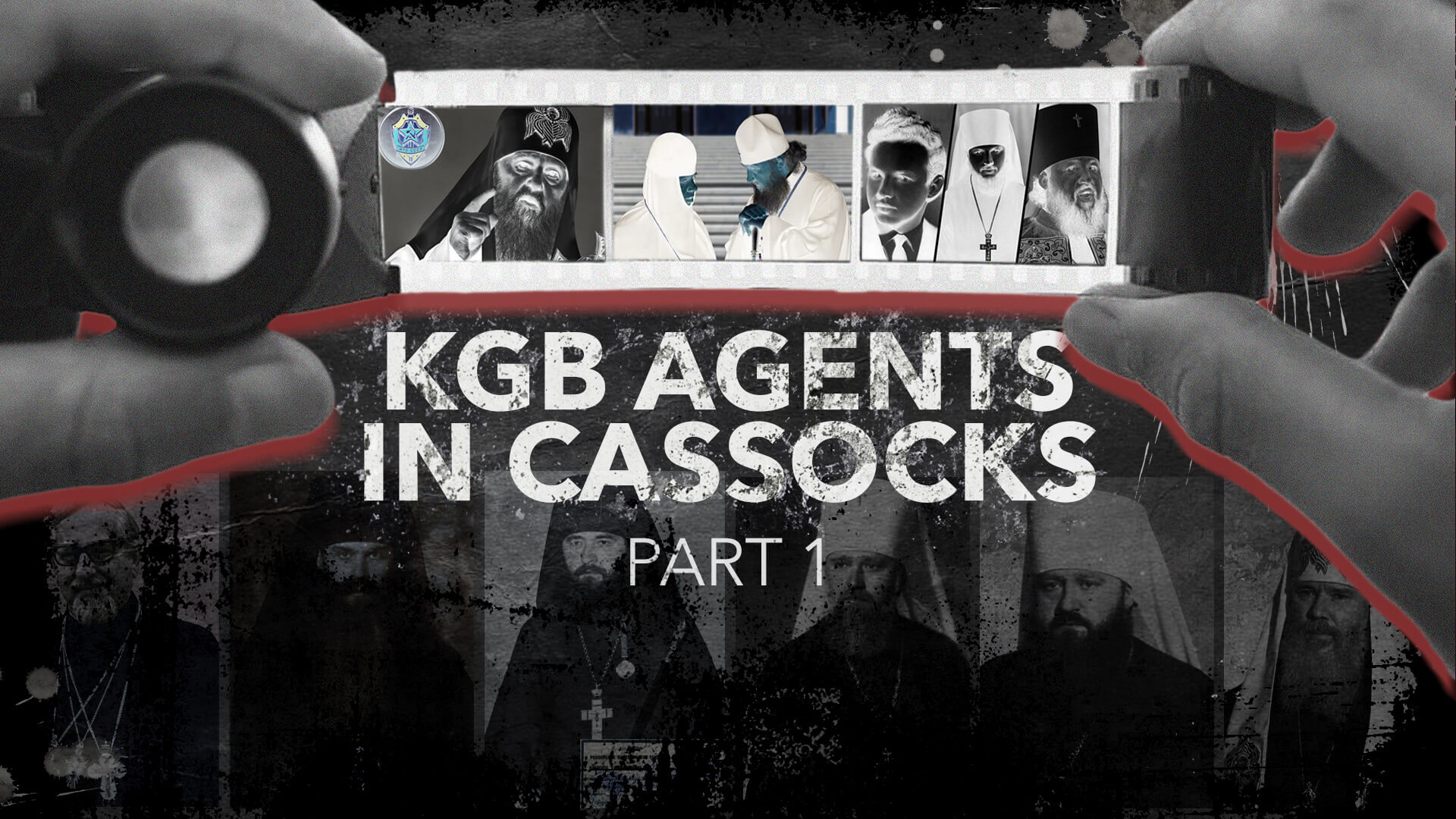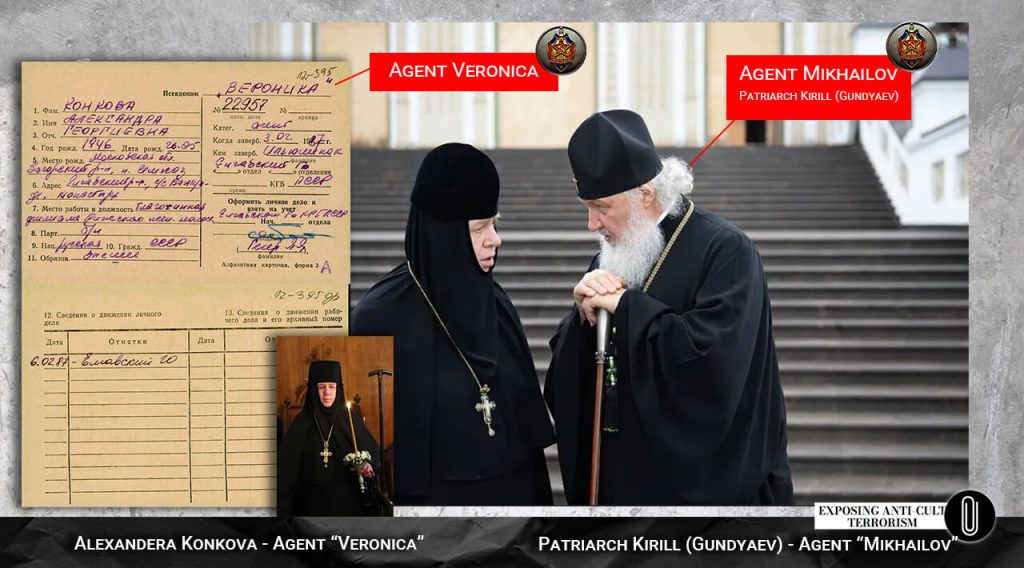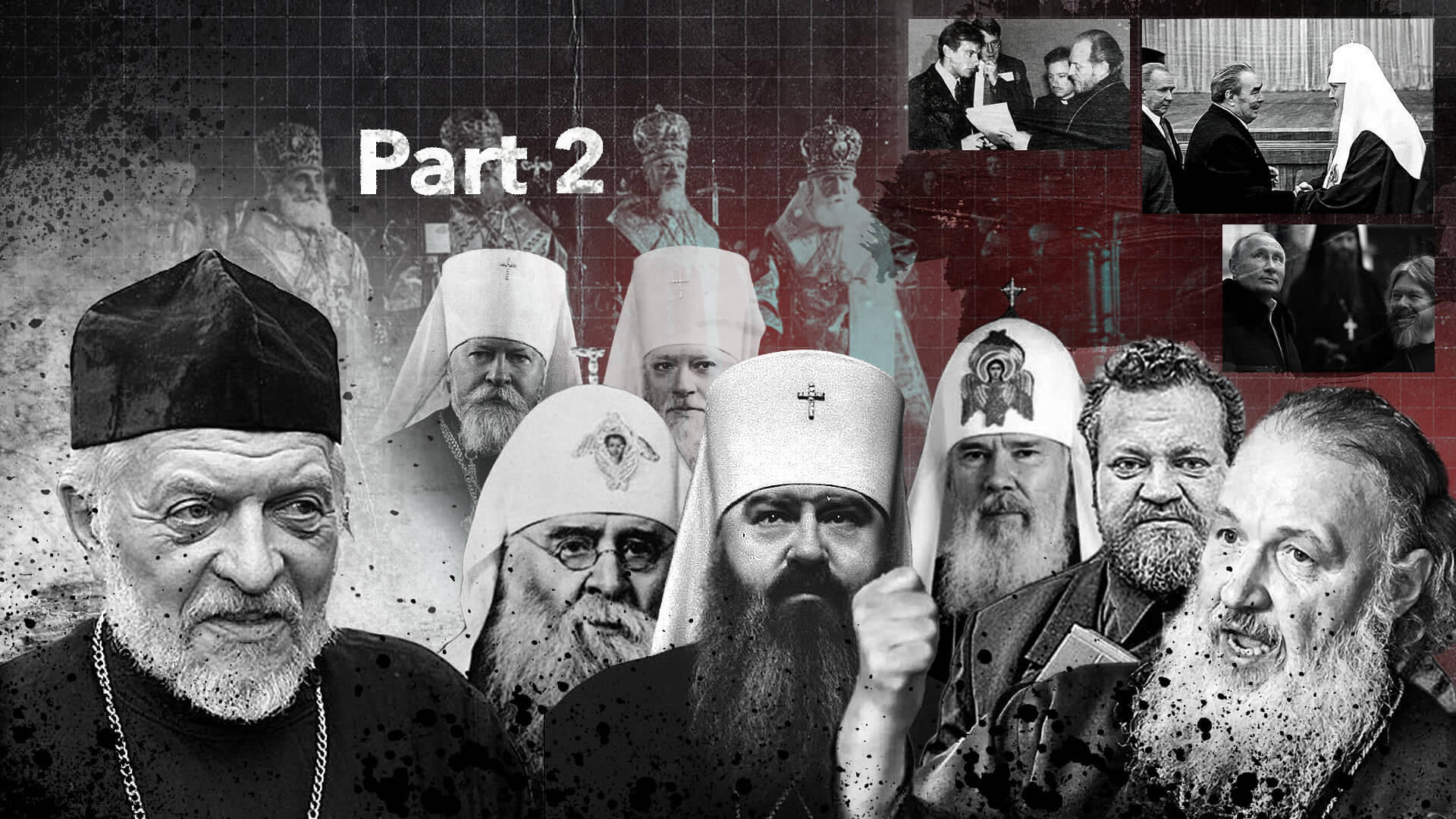“We’ve been fighting the church for 70 years. In particular, we ensured that the most immoral and corrupt people were appointed to the most important positions there. Yet, now we want them to arrange a spiritual renaissance for us.”
Konstantin Kharchev, Chairman of the USSR Council for Religious Affairs, 1984-1989
The deeper we delve into researching the criminal activities of global anticultism, the more surprises come to the surface. In his video appeal “Undeclared War,” Egon Cholakian called the Russian Orthodox Church of the Moscow Patriarchate a facade organization of representatives of global anticultism who infiltrate it. In another appeal, “The Crossroads,” he added the following (quote):
“…the Russian Orthodox Church (ROC) has recently taken steps that not only contradict the fundamental principles of Christianity, but also actively contribute to the escalation of the military conflict… The administrative office of the Moscow Patriarchate recently issued a directive requiring all priests to daily recite a prayer that openly asks God for ‘victory for Russian arms.’ This prayer contains false assertions that Russia was attacked with the aim of ‘dividing and destroying its united people,’ which clearly contradicts reality.
It is deeply concerning that this is the first official document regulating intra-church support for the war. Priests who refuse to recite this pro-war and anti-Christian prayer are defrocked. There is already a known case where a priest was defrocked simply for expressing the opinion that prayers should be for peace, not for victory in war.”
Deep anxiety, misunderstanding, and contradictions embrace every believer at the sight of such a gross distortion of the foundations of Christianity. Why is this happening? Why do people execute commands silently and obsequiously? Why do they not see the terrible and destructive substitutions?
To answer these questions, it is necessary to set aside the illusions of high spirituality and infallibility of church hierarchs adorned in golden vestments and, for starters, to take a critical, unblinkered look at the history of how their religious organization was established. Perhaps, by referring to events of the past, we can gain a better understanding of what is happening in the present.
While preparing the article “Russian Anticult Trail in Latvia. Part 2,” we discovered an interesting fact: the highest clergyman of the Latvian Orthodox Church of the Moscow Patriarchate, Metropolitan Alexander (Kudryashov), was recruited by the USSR Committee for State Security (KGB) during the Soviet era and had a codename “Reader.” Was it a coincidence or a pattern? We have to admit that the conclusions we reached were quite shocking for us.
The next series of analytical publications will be dedicated to collecting information and evidence confirming a close cooperation between two organizations: KGB (the USSR Committee for State Security) and the religious organization Russian Orthodox Church (ROC), alternatively legally known as the Moscow Patriarchate. We will cite the archival documents we have found, showing that the Russian Orthodox Church played the role of not only a spiritual institution, but also an important tool of political influence, both inside and outside the Iron Curtain. In Soviet times, ROC served as a lever of propaganda and manipulation of public consciousness, actively cooperating with state security agencies and carrying out secret missions abroad. This role continued after the USSR’s collapse, which isn’t surprising, given that after the collapse, the KGB intelligence service did not disappear, but only changed its name to the FSB, while ROC was revived and reinforced.
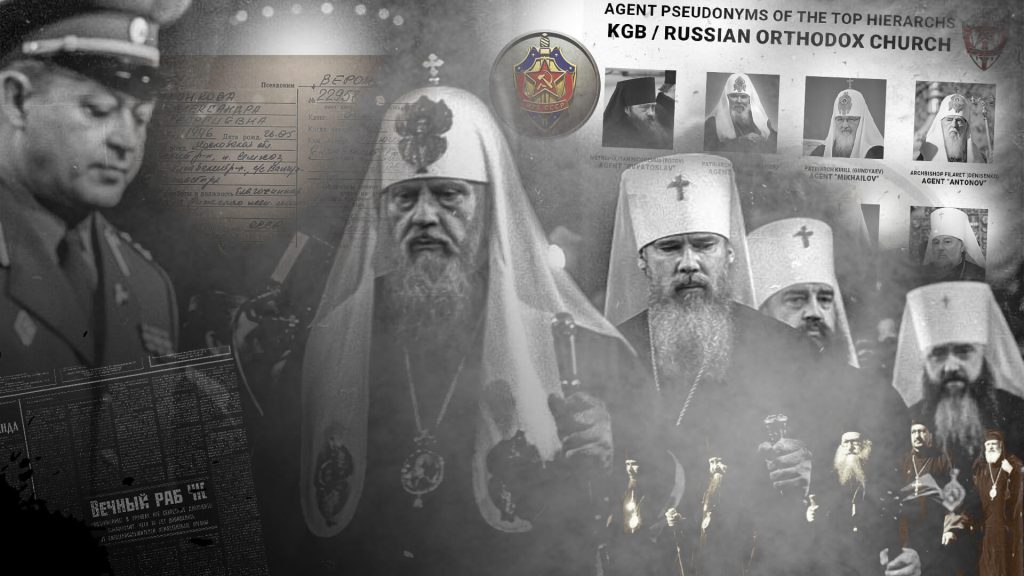
We will start with a basic understanding: the Russian Association of Centers for the Study of Religions and Sects (RACIRS), headed by Alexander Dvorkin, is an executive entity with considerable powers that has seriously influenced the development of events. More details on this can be found in “The IMPACT” documentary. In our opinion, at the current stage, these powers may have been granted by at least three more influential entities in Russia: the elite political club Diveyevo Brotherhood, the Russian Orthodox Church (ROC), and the FSB (the Federal Security Service of Russia). Taking into account that representatives of global anticultism have infiltrated ROC as noted by Dr. Egon Cholakian, we decided to examine in more detail the history of the establishment of the Russian Orthodox Church, or the Moscow Patriarchate. After a brief search, we were surprised to find leaked records from secret archives available to the general public, and this is actually what we’re going to talk about in this article.
Classified documents about the Russian Orthodox Church, discovered in KGB archives
In the early 1990s, some secret documents from KGB archives were declassified in Russia, indicating that almost all the church hierarchs of the Moscow Patriarchate worked closely with KGB officers. Our main task was to double-check how reliable the published materials are. Quite reliable, as it turned out!
On January 8, 1992, the Russian newspaper “Argumenty i Fakty” (“Arguments and Facts”) published an article 1 where the following was stated:
“Currently, a commission of deputies of the Supreme State Council of the Russian Federation is working with the KGB archives. Our reporter P. Vasiliev talked to the member of this commission, priest Gleb Yakunin.”
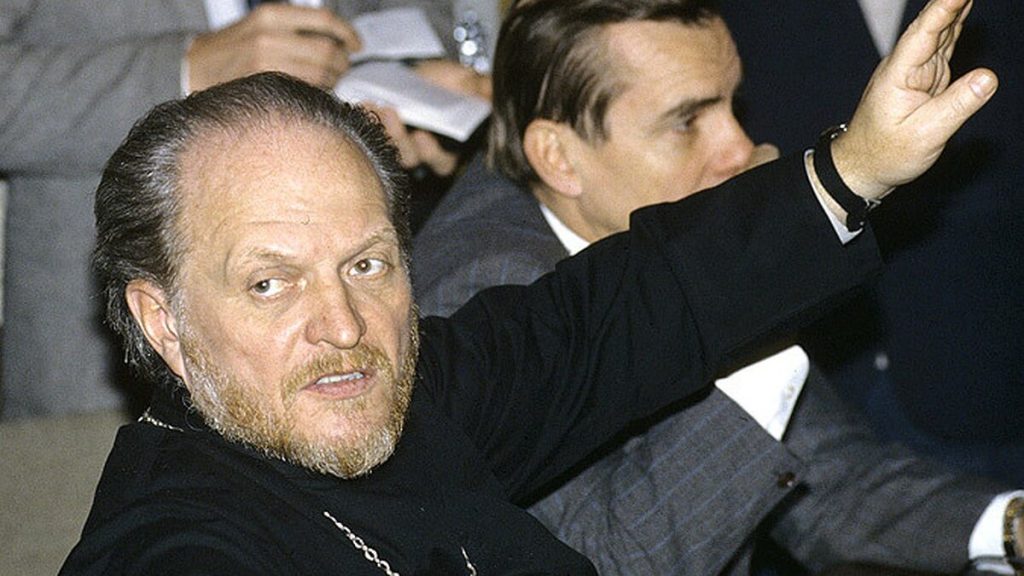
“What do the documents you have to work with look like?” the journalist asked.
“Those are sealed green-colored volumes marked as ‘Classified’ and ‘Top secret’,” responded Gleb Yakunin. “They contain monthly reports on the results of agent-operational activities of various departments of the Fifth Directorate (later Directorate Z), submitted to KGB leadership. As a clergyman, I was instructed to examine the activities of the fourth, so-called church department of that directorate. Since it was recently abolished by the KGB leadership’s decision as the one engaged in unconstitutional activities — control of society’s spiritual life, I believe I have the right to familiarize your readers with the contents of secret documents prepared within the said church department.”
“Father Gleb, judging by these documents, were the activities of ‘agents in cassocks’ limited only to eavesdropping, peeping, and promoting people and decisions beneficial to KGB and the Central Committee of the USSR Communist Party?”
“Not only that. Here are the lines from an August 1988 report by Colonel Timoshevsky: ‘Within the framework of the intelligence operation codenamed “Apothecary,” actions were taken to further compromise the subject in the eyes of his like-minded people and connections in the West… Through agents and other opportunities, we managed to persuade the “Apothecary’s” wife to file a divorce application with the court…’ Moreover, KGB instructed their agents to take “special measures” using special drugs that “loosen one’s tongue”.’
“Who is behind the codenames ‘Abbot’ and ‘Adamant,’ for example? And who is the ‘Apothecary’?”
“‘Abbot’ and ‘Adamant’ are two of the current hierarchs of the Russian Orthodox Church. As for the ‘Apothecary’, for the purposes of conspiracy, KGB gave codenames not only to its agents, but also to individuals it was fighting against. In KGB language, they were called ‘subjects of operational surveillance, dossier gathering or intelligence.’ ‘Apothecary’ is a religious dissident, layman A. Ogorodnikov. The ‘religious extremist’ priest A. Men, for example, had the codename ‘Missionary’, V. Lapkovsky was called ‘Herod,’ A. Bessmertny was codenamed ‘Clown,’ and so on.”
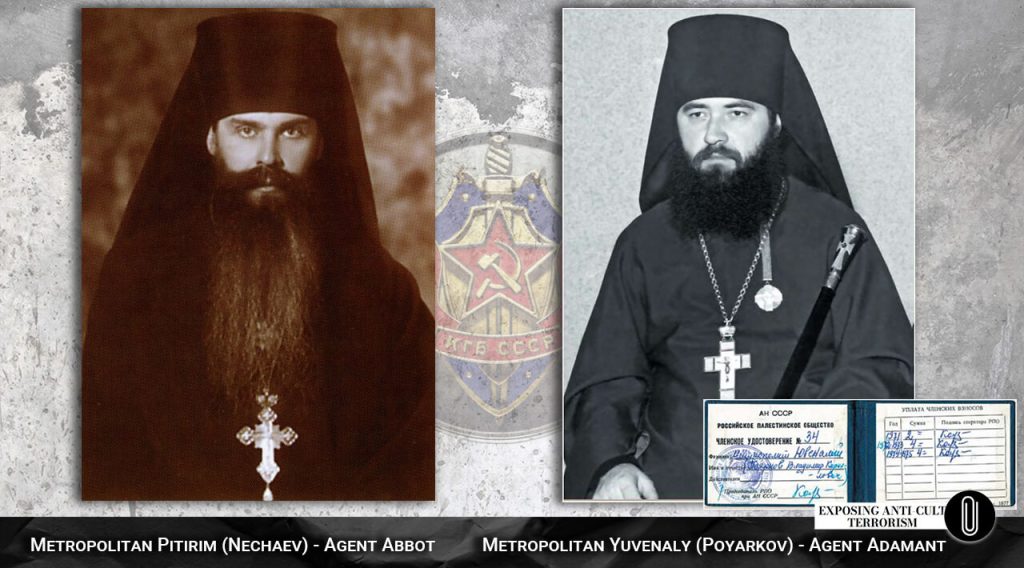
By the way, do you know what codenames the writer A. Solzhenitsyn and academician A. Sakharov had? ‘Spider’ and ‘Ascetic.’ Sakharov’s wife, E. Bonner, was referred to as ‘Fox’ in KGB’s operational reports.”
“Were agents paid for their work?”
“This is not recorded in reports of the fourth department. However, I know that it wasn’t so much KGB that paid the agents, as the agents themselves ‘gave’ the leadership of the fourth department money for arranging their careers. At the same time, reports mention that in 1983 one of the leaders of a Buddhist church, agent ‘Sayana,’ was awarded a diploma from KGB ‘for long-term cooperation and active assistance to state security agencies.’ The most active agents from among ROC leaders, such as agent ‘Adamant,’ were also incentivized. According to KGB itself, their leading agents included ‘Abbot,’ ‘Adamant,’ ‘Antonov,’ ‘Kuznetsov,’ ‘Nesterovich,’ ‘Rock,’ and ‘Altar’.”
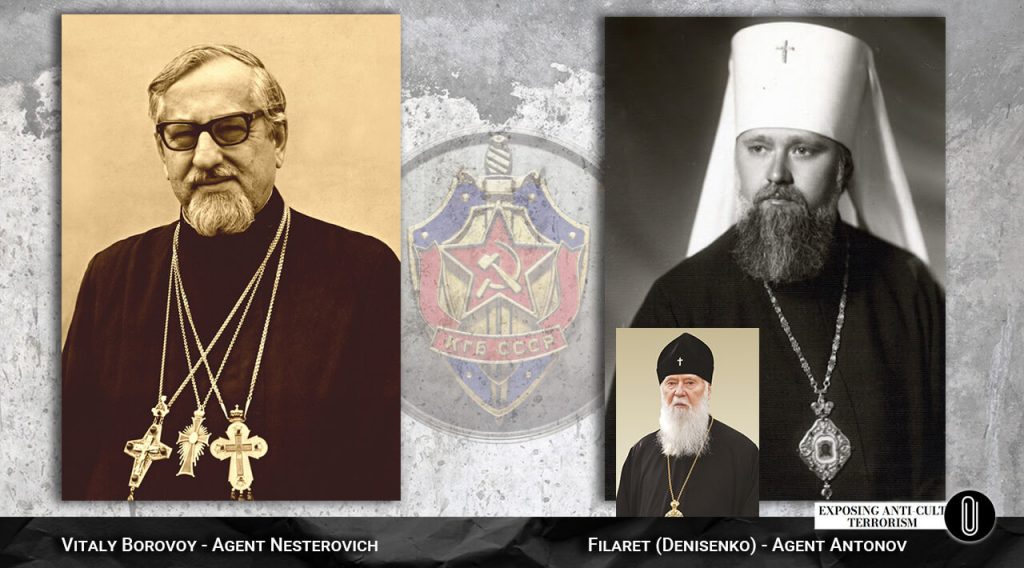
“Thank God, it’s all remained in the past.”
“Unfortunately, this is not the case. I have found out that the leadership of the Moscow Patriarchate’s Department for External Church Relations is being forced to hire one of KGB’s active reserve officers.”
“Frankly speaking, don’t you feel sorry for those people? After all, they became victims of the system…”
“It’s not them who became victims of the system, but honest pastors who faced the entire power of the repressive apparatus… As for ‘agents in cassocks’ who diligently served the KGB, by the ancient church custom they should bring public repentance and cleanse themselves from Judean sin. Without repentance and purification, a genuine spiritual revival of the Church is impossible. May the Lord God help us in that!”
Here’s another screenshot confirming press coverage of this precedent: an article “Eternal Slave of the KGB” by Vyacheslav Polosin, published in the mainstream newspaper “Izvestia” on January 23, 1992.
“There was not a single bishop who did not have contacts with KGB”
In a frank interview to Radio Liberty 4, Patriarch Filaret (Denisenko) of the Ukrainian Orthodox Church of the Kyiv Patriarchate (UOC KP), who had also collaborated with the USSR state security agencies for many years and had the agent codename ‘Antonov,’ confessed:
“There was not a single bishop who did not have contacts with them. If he did not have contacts, he was not a bishop. Therefore, if one of those bishops says that he had no contacts (with the KGB), it means that he is telling an untruth. I know that for sure. Neither bishops nor priests were appointed without the KGB consent. All appointments had to be approved by KGB officials. That’s why there was registration. A bishop’s decree was invalid if there was no registration. In order to be registered, it was necessary to negotiate with KGB so that they agree to the consecration of a bishop and appointment of a priest.”
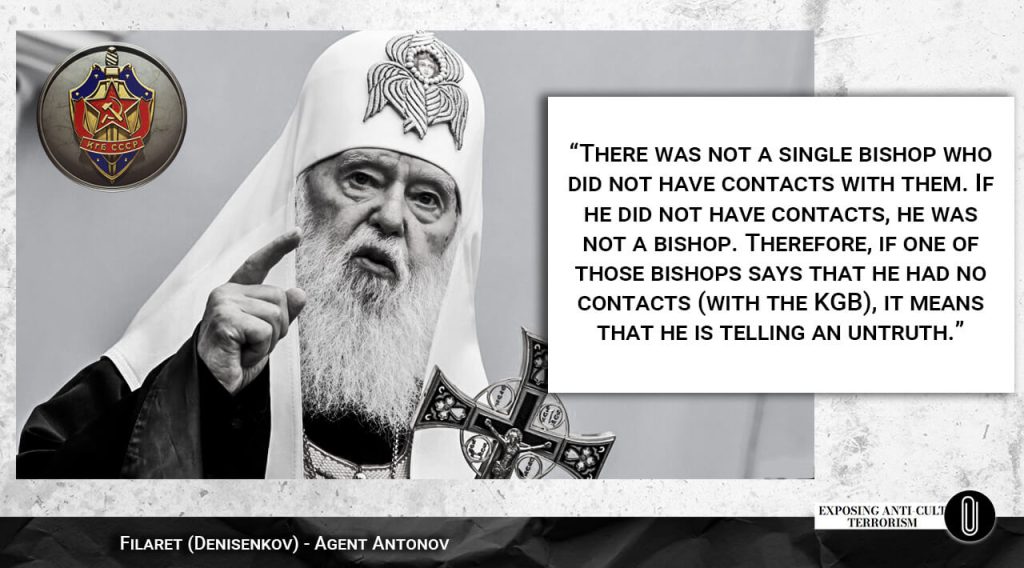
Agent codenames of identified church hierarchs
Here’s a short list of KGB agents in church cassocks who have been identified: 5
Abbot — Pitirim Nechaev 6
Adamant — Juvenal Poyarkov 7
Antonov — Mykhailo Denisenko, Patriarch Filaret
Aramis — Alexander Shushpanov 8
Vasilyev — Alexy Kutepov 9
Grigory — Tikhon Yemelyanov 10
Drozdov — Alexei Ridiger, Patriarch Alexy II 11
Kuznetsov — Alexey Buyevsky 12
Master — Anthony Melnikov 13
Mikhailov — Vladimir Gundyaev, Patriarch Kirill 14
Moskvich — Vasily Sarychev 15
Pavel — Methodius Nemtsov 16
Peresvet — Nikolai Zabolotsky 17
Petrov — Iriney Seredny 18
Svetlov — Mikhail Kulakov 19
Svyatoslav — Nikodim Rotov 20
Tsvetkov — Eusebius Savvin 21
Nesterovich — Vitaly Borovoy 22
Reader — metropolitan bishop Alexander (Kudryashov) who headed ROC diocese in Latvia 23
Anatoly – Ivan Mirolyubov, employee of the Department for External Church Relations of the Moscow Patriarchate, Doctor of Theology, archpriest 24. He was recruited on July 20, 1981 by Prokopets, an employee of the 5th division of the 4th department of KGB in the Latvian SSR.
The name of the abbess of the Holy Trinity Saint Seraphim-Diveyevo Monastery of the Nizhny Novgorod diocese, Alexandra Konkova, is also mentioned in the KGB archives declassified by Latvia. According to this archive, she was recruited by a KGB agent on February 3, 1987, under the codename Veronica. Konkova joined the Seraphim-Diveyevo Monastery in 1991.
The photo below portrays two former secret KGB agents — “Veronica” and “Mikhailov,” the current Patriarch of the Russian Orthodox Church Kirill (Vladimir Gundyaev).
Records of the USSR KGB Central Archive
Next, we will provide excerpts from the aforesaid published records from the USSR KGB Central Archive, which Gleb Yakunin worked with.
1967
Page 43. At the meetings of the World Council of Churches (WCC) Executive Committee and Central Committee, held in September of this year on the island of Crete, agents “Svyatoslav,” “Voronov,” “Antonov,” and others condemned aggressive actions of the United States in Vietnam and Israel’s actions in the Middle East. The ROC delegation voted against resolutions on Vietnam and the Middle East proposed by representatives of Western churches and demanded a discussion of the status of black people in the United States.
February 1969
Page. 32. Agents “Svyatoslav,” “Antonov,” and “Kuznetsov” traveled to Poland as part of ROC delegations to participate in the work of the international religious organization Christian Peace Conference with counterintelligence and intelligence missions. They provided materials on the political situation in this organization due to the events in the Czechoslovak Republic.
August 1969
Page 204. Agents “Svyatoslav,” “Adamant,” “Altar,” “Master,” “Roshchin,” and “Zemnogorsky” travelled to England to participate in the work of the Central Committee of the World Council of Churches (WCC). The agents managed to prevent hostile actions and promote agent “Kuznetsov” to a senior position in WCC.
October 1969
Page 281. As part of the ROC delegation, agents “Svyatoslav,” “Kuznetsov,” and “Antonov” traveled to meetings of the working committee of the Prague Christian Peace Conference (PCPC) in the German Democratic Republic. The agents were tasked with compromising the PCPC General Secretary J. Ondra (a citizen of the Czechoslovak Republic who made anti-Soviet statements during the events in that country) and ensuring his resignation from the post.
October 1969
Pages 281-282. Agents “Drozdov” and “Peresvet” traveled to England as part of the ROC delegation to attend meetings of the Executive Committee of the Conference of European Churches (CEC). The agents provided information on individuals of KGB’s interest and the organization’s activities.
As part of the delegation of USSR churches, agent “Moskvich” traveled to St. Louis, USA, to participate in the consultation “Christian Concerns in Arms Limitation.” Following our assignment, in his report he informed those present about the status of religions in the USSR. “Moskvich” collected data on some foreign figures of interest to the state security agencies…
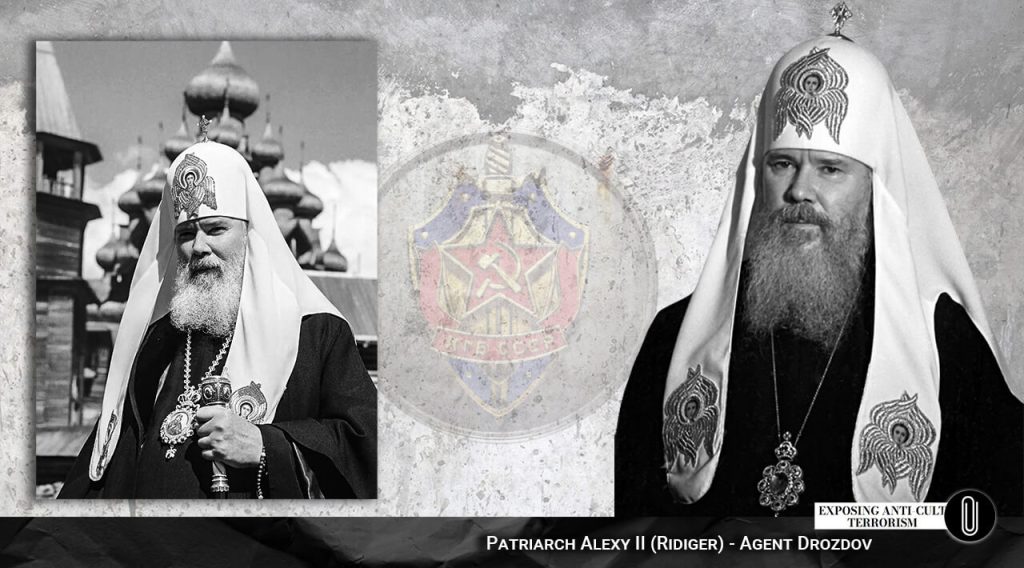
August 1970
Page 270. Agent “Svyatoslav” traveled to the USA with a task of investigating processes within the US Orthodox Church due to the autocephaly it has been granted and within the Karlovci Church abroad in relation to which measures are being taken to discredit it as an anti-Soviet center.
In order to refute malicious propaganda about the church’s situation in the USSR, agent “Svyatoslav” held a number of press conferences and meetings with some prominent US church leaders, and also paid a visit to the UN Secretary-General U Thant.
Page 292. A directive No. 48 C, dated July 28, 1970, “On the Use by KGB Bodies of the Russian Orthodox Church Capabilities in Counterintelligence Domestically and Abroad,” signed by the KGB leadership under the USSR Council of Ministers, was issued.
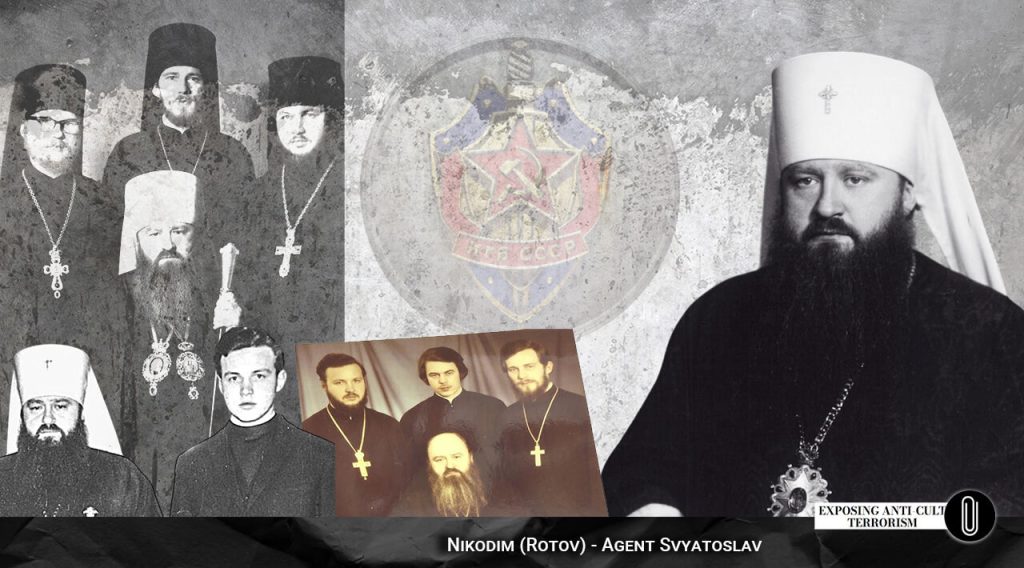
February 1972
Agents “Svyatoslav” and “Mikhailov” traveled to New Zealand and Australia to attend meetings of the World Council of Churches (WCC) Central Committee.
May 1972
A Soviet citizen codenamed Krylov has been recruited as a KGB agent from among the ROC authority figures.
February 1973
Page 32. KGB agents “Master” and “Mikhailov” were sent to Thailand and India to participate in WCC activities. The agents had a beneficial influence on the council’s work and provided materials of intelligence interest on the situation in WCC and characterizing data on individual figures.
Agent “Kuznetsov” was sent to Prague to participate in the Christian Peace Conference and provided information of intelligence interest.
February 1973
Philip Porter, WCC General Secretary, was a guest of the Moscow Patriarchate in the USSR. Favourable influence has been exerted on him and information of intelligence interest has been obtained through agents “Svyatoslav,” “Adamant,” “Mikhailov,” and “Ostrovsky.”
May 1973
The following agents were sent abroad on counterintelligence missions: “Nesterov” and “Academician” to England and Switzerland, “Peresvet” to France, “Moskvich” to Germany, and “Zazulya” to Poland. The agents participated in the work of various commissions of WCC and the Christian Peace Conference and exerted politically beneficial influence.
Records of Department 4 of the Fifth Directorate of the USSR KGB:
January 1977
Agent “Kuznetsov,” working at Department 4 of the Fifth Directorate, left for Czechoslovakia. Agents “Adamant,” “Nikolsky,” and “Mikhail” were sent to India as part of the delegation headed by Patriarch Pimen. [Delegation members are listed in the Moscow Patriarchate Journal, 1977, Issue 4, page 4: metropolitan bishop Juvenal Poyarkov, then chairman of the Department for External Church Relations (DECR), bishop Melchizedek of Penza, archpriest Matthew Stadniuk, hieromonk Anthony Kuznetsov, archdeacon Vladimir Nazarkin, and DECR employee M.L. Voskresensky.]
February 1977
Agents sent abroad: …“Adamant” and “Antonov” — to India.
January 1980
Page 27. Agent “Abbot” went to Sweden on a counter-propaganda mission through the Union of Soviet Friendship Societies (USFS).
March 1980
Agents “Abbot” and “Markov” attended a meeting of the International Association of Religion Journalists (IARJ). The information they provided about the situation in IARJ and Hesler, the object of our intelligence interest, is interesting to the KGB.
Page 214. Agent “Abbot” went to England to attend the enthronement of the Anglican Church head.
Page 223. In order to strengthen agent connections, agent “Grigorenko” from the Ukrainian SSR KGB has been promoted to a senior position in ROC.
April 1980
Page 75. Agent “Pavel” has been promoted to a senior position in ROC and sent to Irkutsk.
May 1980
Agent “Remarque” travelled to Germany on a short-term business trip. The agent was tasked with studying the processes that take place in international circles and investigating the behavior of agent “Markov” (KGB Directorate for Leningrad Region).
Agents “Vadim” and “Voronov” visited the Hungarian People’s Republic. Agent “Georgiev” from the KGB Department in Leningrad Region returned from a meeting of the WCC Youth Commission held in Switzerland.
June 1980
Agent “Abbot” was sent to France. “Abbot” had traveled to the United States through the Soviet Peace Defense Committee.
September 1980
To expose manipulation of public opinion in the West regarding the criminal case against Yakunin, agent “Yesaulenko” gave an interview to a TASS reporter, which has been spread by the media abroad.
November 1980
Page 139. Agent “Abbot” attended the European Ecumenical Assembly in Germany.
December 1980
Agents “Abbot” and “Remarque” returned from a trip to Germany. A positive influence has been exerted through the agents on believers as to exposing slanderous fabrications about believers’ situation in the USSR.
Same record, volume 3, page 240
December 1982
In Voroshilovgrad Region, an active Baptist schismatic Khato has been convicted under Article 190 of the RSFSR Criminal Code and sent to a psychiatric hospital for compulsory treatment.
In 1982, 1,809 meetings were held and 704 messages were received. 13 secret locations and 2 safehouses are used to work with agents.
The most significant results include the following:
Through ROC’s leading agents, the Georgian and Armenian churches firmly maintain loyalty and actively support the peaceful policy of the Soviet state.
According to the plan of active measures against the deployment of intermediate-range missiles in Europe, developed in pursuance of the resolutions of the USSR Communist Party Central Committee and approved by the USSR KGB leadership on August 28, 1981, as well as within the framework of a plan developed jointly with the Agency A of the USSR KGB First Directorate on beneficial influence on clerical circles in the West through the leading KGB agents “Abbot,” “Antonov,” “Kuznetsov” and others, a complex of actions has been carried out through religious channels to influence the socio-political circles of Western European countries. Through ROC’s agency capabilities and allies, the Pope was also informed that his “excessive” involvement in Uniate issues can only damage relations between the Vatican and the Russian Orthodox Church.
Currently, 229 churchmen and sectarians are serving sentences for specific crimes in the country (in 1981, there were 220 of them). In addition, 18 individuals are in exile (in 1981, there were 24 exiled).
KGB units maintained over 2,500 intelligence cases against hostile elements from this category of citizens (in 1981, there were 2,225 cases).
January 1983
On January 25 of this year, agents “Shair” and “Batyrov” (KGB of the Uzbek SSR) returned from Saudi Arabia and Egypt where they participated in the 8th session of the World Muslim Communities Council. They provided information of intelligence value.
In order to form public opinion favorable to the USSR in the Muslim world and ensure proper cover upon transmission abroad via TASS and Moscow Radio channels, an interview with agent “Shair” who traveled to Saudi Arabia and Egypt on a mission has been arranged.
February 1983
In Tula, a meeting of the RSFSR Republican Council of Seventh-day Adventists (SDА) was held on the initiative and under the supervision of agents. The issues of the council’s further work on normalizing the situation in the church and complying with legislation on cults have been considered.
February 1983
Agents “Mikhailov” and “Konstantin” have been sent to Switzerland to participate in preparations for the WCC Assembly.
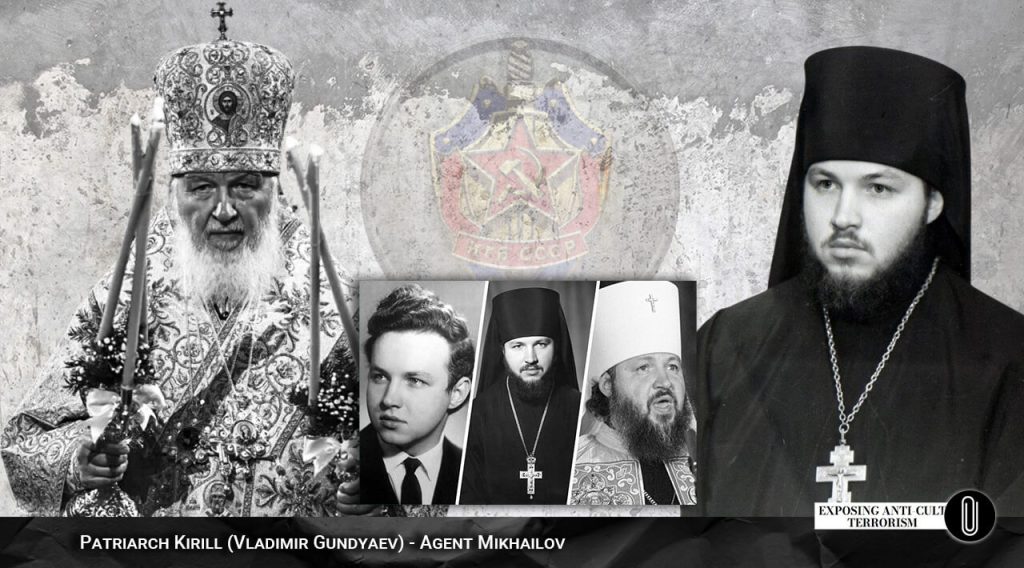
March 1983
Page 291. In December last year, a group of monks from the Pskov-Caves Monastery expressed dissatisfaction with the conditions in the monastery and filed a complaint with Patriarch Pimen against the Pskov-Caves Monastery abbot.
Through agents “Drozdov” and “Skala,” educational work has been conducted among the monks of the Pskov-Caves Monastery. As a result of the measures taken, the initiators have been reassigned to parishes in the Pskov Diocese (4 individuals), 2 individuals remained in the monastery, and 4 individuals left the Pskov Diocese.
The situation has since normalized.
April 1983
Page 101. Through agents “Ostrovsky” and “Kuznetsov,” an open letter from Patriarch Pimen to the U.S. President Reagan was prepared. The letter was published in The New York Times, reprinted in Izvestia on April 11, 1983, and sent to allies for publication in their newspapers.
May 1983
An ROC delegation headed by Patriarch Pimen traveled to the People’s Republic of Bulgaria (PRB) for the jubilee celebrations marking the 30th anniversary of the Bulgarian Orthodox Church’s patriarchate. The delegation included KGB agents “Ostrovsky,” “Nikolsky,” “Ognev,” “Sergeyev,” and an active reserve officer acting as a patriarchate staff member.
Agents “Abbot,” “I. Sergeyeva,” and “T.V.” traveled to Ireland.
July 1983
Page 191. A clerical delegation from the USSR, including 47 KGB agents from among religious authorities, clergy, and technical staff, was sent to Vancouver, Canada, to attend the 6th General Assembly of WCC.
October 1983
Page 253. An ROC delegation traveled to Denmark at the invitation of the Denmark-USSR Friendship Society. The delegation included agents “Abbot” and “Grigory.” The agents were tasked with promoting peaceful policies of the Soviet state and exposing Western propaganda’s fabrications about the status of religion and believers in the USSR.
Page 253. An ROC delegation traveled to ČSSR to celebrate the 25th anniversary of the CPC. The delegation included KGB agents “Antonov,” “Vadim,” and “Kuznetsov.” With their active involvement, a declaration was drafted for the 25th anniversary of CPC, which largely reflected the interests of the Soviet state. [Journal of the Moscow Patriarchate (JMP), 1984, Issue 1, page 48. On October 13 and 14, the ROC delegation included Metropolitan Filaret of Kyiv (“Antonov”), Bishop Sergiy of Solnechnogorsk, Buevsky, and Archpriest Georgiy Goncharov, the ROC representative at CPC. “Vadim,” aka Archbishop Sergiy “Antonov” resided in Prague and did not “arrive” there.]
Page 256. From October 3 to 8, a meeting of members of the Ecumenical Information Circle in Europe (an organization uniting Christian publicists) was held in Moscow, with 23 foreigners participating. Through agents “Abbot” and “Grigory,” politically advantageous influence was exerted on the foreigners.
Page 256. From September 28 to October 3, a meeting of representatives of church press organizations was held at the Publishing Department of the Moscow Patriarchate in Moscow, with 12 foreigners participating. Issues of information exchange were discussed. Through agents “Abbot” and “Grigory,” politically advantageous influence was exerted on the foreigners.
Page 257. A meeting of the CPC working committee on disarmament was held in Moscow. To exert positive influence, secure favorable decisions, and monitor individual delegates, 9 KGB agents, including “Antonov,” “Ostrovsky,” “Kuznetsov,” and “Vadim,” were assigned to participate in the meeting. The meeting was successful, and final documents aligned with the interests of the Soviet state. [Report on the meeting in *JMP*, 1984, Issue 1, pages 56–57. The ROC delegation included Metropolitan Filaret of Kyiv, Bishop Sergiy of Solnechnogorsk, Buevsky, and Archpriest Georgiy Goncharov, ROC representative to the CPC in Prague.]
January 1984
Page 32. Until January 12, a group of pilgrims from the United States, led by Averino, was in the USSR under the auspices of the Moscow Patriarchate. KGB agents and local KGB Directorate officers were assigned to monitor the foreigners and exert politically advantageous influence on them. Information about the foreigners’ stay in the USSR was obtained and deemed significant for intelligence purposes.
Page 34. To study the situation in and around the Pskov-Caves Monastery, agent “Sergiy” was sent to the town of Pechora. He provided valuable information on the results of his assignment.
February 1984
Page 163. Material on deficiencies in counterintelligence support for ROC theological schools has been prepared for publication in the bulletin of the Fifth Directorate.
March 1984
Page 272. In response to a report about possible treasonous sentiments of agent “Nesterovich,” he was withdrawn to the USSR through our intelligence channels and the assistance of allies in the Hungarian People’s Republic (HPR). Agents “Prokhorov,” “Vadim,” and “Kuznetsov” participated in the operation. Work on the report is ongoing.
Page 277. To strengthen agent positions within the ROC: agent “Petrov” (KGB of the Kazakh SSR) has been assigned to Kharkiv, “Tsvetkov” (KGB Directorate for Moscow Region) has been sent to Alma-Ata, and “Vasilyev” (KGB Directorate for Vladimir Region) has been sent to Zagorsk.
Page 279. A memo was sent to the USSR KGB regarding the withdrawal of agent “Nesterovich” from Geneva to the USSR.
November 1984
Through leading agents among preachers of the Seventh-day Adventist Church, including “Vinogradov,” “Grigoryev,” “Sokolov,” and others, a re-election of the senior minister for the Central Region was conducted in Tula. As a result, agent “Svetlov” (KGB Directorate for Tula Region) has been promoted to this position.
May 1985
Page 48. Agents “Antonov,” “Kuznetsov,” “Vadim,” and “Prokhorov” were sent to the HPR for a meeting of the CPC working committee with the task of preparing the 6th CPC Congress in a manner favorable to us. The working committee determined members of several governing bodies of the congress, where our agents would be promoted. [In *JMP* 1985, Issue 8, page 6, the Synod heard a report from Metropolitan Filaret Denisenko on the delegation’s trip to Budapest on May 1-17, 1985. However, the list of the delegation members wasn’t disclosed.]
Pages 54–55. Regarding the ODF “Photographer,” taking into account newly received data from agents “Abbot,” “Konstantin,” and “Ruf,” as well as the intelligence data collected via phone-tapping, proposals have been prepared for active agent-operational measures against the target.
Page 51. Memos have been prepared for the USSR KGB:
– regarding incentivizing agent “Adamant.”
June 1985
Page 164. As part of the Russian Orthodox Church (ROC) pilgrimage group to Jerusalem (Israel), agents “Troitsky” (KGB of Uzbek SSR), “Nestor” (KGB Directorate for Chernihiv region), and “Pavel” (KGB Directorate for Voronezh region) traveled. [See the essay on the trip by Archbishop Theodosius of Berlin and Central Europe in the Journal of the Moscow Patriarchate (JMP), 1986, No. 2, Pages 14–17. Led by Ridiger, the delegation’s composition is listed in JMP, 1984, No. 10, Pages 13–15.]
December 1985
Page 32. Agent travel abroad:
From December 14 to December 18, 1985, agent “Konstantin” went on a short-term business trip to Switzerland.
The information obtained from the agent is being processed. [JMP, 1986, No. 3, Page 5. The Synod heard a report from Metropolitan Filaret of Minsk from the Department for External Church Relations (DECR) on the first meeting of the Joint Commission for Dialogue between the Orthodox Church and the Oriental Orthodox Non-Chalcedonian Churches, held from December 10 to December 15, 1985, in Chambésy, Switzerland, with the participation of Archbishop Pitirim of Volokolamsk, Professor B.A. Nelyubov of the Moscow Theological Academy, and DECR member G.N. Skobey.]
Agents “Yudunov” and “Gambozhayev” (KGB of the Buryat ASSR) and “Semenov” (4th Department) traveled to India for events marking the opening of the “International Year of Peace.”
Agent “Grekov” was sent as part of the ROC delegation to Geneva for a meeting of the joint commission of representatives of the ROC and Middle Eastern churches. The agent was tasked with studying the meeting participants as well as members of the ROC delegation.
Page 33. Agent “Mikhail” returned from Paris, where he had been on a business trip for the ROC concerning the affairs of the Western European Exarchate. The information obtained about the subversive intentions of foreign clerical centers is being processed.
Agent “Grekov” returned from Geneva, where he participated in the joint commission meeting of representatives of the ROC and Middle Eastern churches as part of the ROC delegation. The agent submitted a report on the completion of the assigned task.
Page 35. As part of the planned measures for the development of the operational surveillance file (OSF) “Judas,” the 5th Department of the KGB of the Yakut ASSR established operational contact with the target.
As a result, the subject provided intelligence information of great importance, indicating the advisability of continuing contact with “Judas” by KGB officers to exert corrective influence, study his plans and intentions, and obtain explanations on matters of interest.
Page 36. Operations under the OSF “Photographer” involved tracking individuals involved in creating the photo album “Golden-domed Moscow” and transferring materials for it to the West.
As a result, a connection was established between “Missionary” and “Photographer,” identified as M.E.L., who may have assisted “Photographer” in selecting literature and typing texts for the album. Samples of typewriter fonts from the Moscow Theological Academy were also obtained. Preparations are underway for forensic examination of the materials.
– Information was received from agent “Nikitin” about the reactions of the circle of people surrounding the target of the OSF “Missionary” to the use of an open letter in counter-propaganda activities. This letter was received from the OSF subject of the KGB of the Tuvan ASSR, M.S.V.
– Information was received from agent “Nikitin” about the intentions of the target of the OSF “Ugodnitsa” (“Adulteress”) to emigrate permanently abroad.
Page 39. Control meetings:
“Mikhail” (KGB Directorate for Poltava Region) – Timoshevsky
“Podolsky” (4th Department) – Timoshevsky
“Antonov” (KGB of the Ukrainian SSR) – Timoshevsky
Page 40. The information bulletin of the Department of External Church Relations (DECR) of the ROC for dissemination in the West, contained a statement by the subject of the OSF “Missionary” to the Council for Religious Affairs under the Council of Ministers of the USSR, exposing Western insinuations about alleged persecutions of the target.
– To assist in organizing the search for the leader of the Baptist schismatics, Kryuchkov, from December 6 to December 27, the head of the 3rd Division of the 4th Department, Comrade Sychev V.S., was on assignment in the KGB of the Moldavian and Estonian SSRs.
Page 42. To obtain explanations on matters of interest from the OSF “Judas” (KGB of the Bashkir ASSR), Senior Operative Officer of the 4th Department, Makarov V.D., was in the KGB of the Bashkir ASSR from November 26 to December 12.
The target provided declarative materials about the criminal activities of several individuals under KGB operational surveillance files.
For use in counter-propaganda activities leveraging the resources of the USSR KGB’s OTU (Operational and Technical Directorate), a video recording of “Judas’s” public address condemning his criminal activities was made. Additionally, an article based on the target’s meetings and conversations with a correspondent from the newspaper Trud is also being prepared for publication.
1986
January 3, 1986
Page 134. Agents traveled abroad on counterintelligence missions:
To the United States: “Fyodorov,” “Almazov,” and “Zheleznyak” (KGB of the Ukrainian SSR) to participate in the congress of the Union of Ukrainian Baptists.
To Switzerland: agents “Adamant” and “Klenovsky” attended a conference of non-governmental organizations.
To Switzerland: agents “Maria” and “Kuznetsov” participated in the activities of the Commission of Churches on International Affairs (WCC).
To Hungary: agents “Konstantin” and “Lukyanov” attended the “Towards United Peace” conference. The collected materials are being processed.
Return of agents from abroad:
From Austria: “Vasilyev,” “Duk” (4th Department), and “Sorokin” (KGB Directorate for Moscow and the Moscow Region) in the EBF (European Baptist Federation) youth committee meeting. Agent “Vasilyev” was re-elected to the Executive Committee for another term; objective information about the situation of believers in the USSR was conveyed.
From Switzerland: agents “Kuznetsov” and “Maria,” who participated in the Commission of Churches on International Affairs (WCC) activities. The collected information is being processed.
From Switzerland: agents “Adamant” and “Klenovsky.” The collected information is being processed.
From India: agents “Yudunov,” “Gambozhayev” (KGB of the Buryat ASSR), and “Semenov” (4th Department), who attended events marking the “Year of Peace” opening. The collected information is being processed.
Page 138. Surveillance activities targeting OSF “Missionary” continued through informants to assess the operational situation arising from Markus’s appearance on Central Television. Agent “Nikitin” was dispatched to the Zagorsk district to meet with “Missionary,” where he conducted a series of conversations. The obtained intelligence is deemed noteworthy for KGB oversight.
Page 140. During the investigation of a tip regarding unauthorized religious gatherings of youth in Moscow at a private apartment, individuals connected to these activities were identified. Among them: M.V.N., K.A.V., M.L.D., and T.I.Sh., who serves as a liaison for OSF “Missionary.” These individuals are now under further investigation.
Page 143. The personal file of agent “Petrov” (KGB Directorate for the Gorkovsky region) was reviewed. Based on the materials studied, it was determined appropriate to classify agent “Petrov” as an asset of high value. The KGB Directorate for the Gorkovsky region has been notified.
May 1986
Pages 49–50. In coordination with the KGB of the Ukrainian SSR and the KGB Directorate for the Lviv Region, counterintelligence measures were implemented to secure the 40th-anniversary celebration of the Lviv Council, which had abolished the Uniate Church in the USSR.
A large group of KGB agents participated in organizing and executing events, including “Adamant,” “Antonov,” “Lukyanov,” “Skala,” and others. The celebration, attended by approximately 300 guests and 10 representatives of foreign Orthodox churches, proceeded in a manner acceptable to us. Positive influence was exerted on foreigners, and some gave favorable interviews. Coverage of the event was disseminated abroad through mass media for counter-propaganda purposes.
The KGB Directorate for the Lviv region, acting on our directive, prevented an attempt by West German journalist E. Zigli (FRG) to collect biased information about the status of the church in the Ukrainian SSR.
Page 165. Efforts were undertaken to prepare for and oversee the council of the Old Believers Church of the Belokrinitsa tradition, where elections for the head of the church were to be held. In this regard, guidance was sent to 20 KGB and regional KGB directorates, requesting support through available channels for the most acceptable candidate, Bishop Alimpiy.
September 1986
Pages 40–41. Agents “Antonov,” “Ostrovskiy,” and “Nesterovich” traveled to Geneva to participate in the Third Panorthodox Preconciliar Conference. They were tasked with delivering objective information to Western religious circles regarding the progress of negotiations in Reykjavik and the need for active support of the Soviet state’s peace initiatives.
Agents “Kuznetsov” and “Moskvichka” traveled to Sweden as part of the ROC delegation to attend the board meeting of the inter-Christian institute “Life and Peace.” Intelligence was gathered on the institute’s leaders — R. Williamson, O. Dagen, and S. Schelbeck — and their plans to expand the institute’s efforts in promoting peacemaking activities among churches and religious organizations worldwide.
October 1986
Pages 44–45. Agents “Konstantin” and “Potapov” conducted profiling operations on members of the delegation from the Episcopal Churches of the United States. As a result, operationally significant intelligence was obtained on certain foreign individuals… Plans are underway to compile two operational surveillance files.
1986 (undated), excerpt from 2010 record No. 5/4 2177, p. 155
Agent “Grigoriy,” operating through the Moscow Patriarchate, was dispatched to Peru with the exhibition “The ROC in the USSR.” The agent was assigned to assess the country’s internal political climate and identify any potential subversive activities directed against the USSR by foreign clerical and church organizations.
June 1987
Page 110. Pursuant to sanctions issued by the USSR KGB and the Central Committee of the Communist Party of the Soviet Union (CPSU), the Council for Religious Affairs under the USSR Council of Ministers conducted explanatory and cautionary discussions with Yakunin, Gainov, and Popkov, who had signed an “appeal” to authorities with “demands” for liberalizing religious life in the USSR.
Page 111. To preempt foreign media coverage of a press conference held in Moscow by religious extremist Yakunin and his associates regarding their “appeal” to authorities with “demands” for the liberalization of religious life in the USSR, we leveraged the operational capabilities of the 5th Directorate and the First Chief Directorate of the KGB to organize a press conference with Metropolitans Juvenal and Filaret for Soviet and foreign journalists. The ROC clergy provided an objective overview of the state of the church and freedom of conscience in the USSR while critically examining Yakunin’s appeal and his connections. The press conference materials were sent to the West through TASS, APN, and Gosteleradio channels.
1987 Report from the 4th Department of the 5th Directorate
For the first time, agent “Adamant,” a hierarch of the ROC, participated as part of the Soviet delegation at a UNESCO general session. This effort succeeded in engaging this influential international organization in “jubilee” events, countering foreign subversive centers.
January 1988
Pages 4–5. Using the resources of the 6th Service of the KGB’s Operations and Technology Directorate (OTD), a brochure titled “Conversation at the Crossroads” (prepared by agent “Ryazansky”) was sent to ROC hierarchs, several OSF targets, the Council for Religious Affairs under the USSR Council of Ministers, and the editorial office of the journal “Science and Religion.” The brochure exposed the anti-social activities of religious extremists.
Additionally, it was distributed to 15 regional KGB offices for dissemination among church circles and branches of the so-called “Memory” society, as well as to the First Chief Directorate of the KGB for publishing in the West.
February 1988
Page 209. An order was prepared by the chairman of the KGB to award agent “Drozdov” an honorary certificate.
March 1988
Page 2. Operational measures were implemented to secure the Bishops’ Pre-Council of the ROC in Moscow, which was attended by 72 hierarchs (including four foreign citizens, two of whom were operational selection targets). The situation among the meeting participants was monitored using agents and OTD “T” and “S” (applied to 10 individuals). A positive communiqué was adopted, providing a principled assessment by the ROC episcopate of the activities of religious extremists in the USSR.
A press conference was held with foreign journalists and several ROC hierarchs, who objectively described the state of the church in the USSR, its relationship with the state, and condemned the schismatic activities of religious extremists.
To coordinate KGB actions during the preparation and conduct of the Bishops’ Council and Local Council of the ROC in connection with the 1,000th Anniversary of the Christianization of Rus’, a directive, signed by KGB leadership, was issued to the relevant locations.
June 1988
Page 239. To counter religious extremists in church circles, the first issue of the unofficial magazine Slovo was produced with the approval of the USSR KGB, using agents “Ryazansky” and “Tropinin” and the target of the OSF “Apostol,” who maintained operational contact. The journal was distributed among believers and included articles exposing the anti-social activities of Father Yakunin.
August 1988
Page 75. Measures were taken against the target of the OSF “Apothecary” aimed at further discrediting the subject among his associates and Western contacts. For this purpose, the second issue of the unofficial journal “Slovo” was published, containing exposing materials about the target.
September 1988
Page 145. Agent “Markov,” who traveled to Finland to participate in a seminar dedicated to the 1,000th Anniversary of the Christianization of Rus’, provided information on the situation within ROC parishes in Finland.
Agent “Konstantin,” who participated in the Lambeth Conference of the Anglican Communion in the United Kingdom, provided information on the leaders of the clerical subversive organization “Keston College.”
Agent “Potemkin” attended the Central Committee meeting of the World Council of Churches (WCC) in West Germany. He obtained data on the situation at the organization’s headquarters and upcoming personnel changes within the organization’s leadership.
Agent “Konstantin” traveled to the United States to participate in the North American Christian Peace Assembly. He provided information on the operational selection targets “Professor” and “Ponomar,” as well as on the situation within the Christian Peace Conference (CPC).
October 1988
Page 215. To ensure counterintelligence support for the session of the Committee on the Continuation of the Work of the CPC and to carry out agent-operational measures in collaboration with allies (Bulgaria, Hungary, East Germany, Cuba, and Czechoslovakia), comrades Shirokopyas V. and Spiridonov A. M. were dispatched to East Germany. Twelve agents from state security agencies were also sent. During the event, attempts at provocative attacks on the churches of socialist countries were neutralized, unfavorable personnel changes were prevented, and politically advantageous final documents and amendments to the Statute were adopted.
Page 217. Five personnel cases of agents from regional security agencies were reviewed, and they were recommended for promotion to leadership positions within the ROC.
December 1988
Page 65. Agents “Kirill,” “Ivanov,” “Bendarets,” “Rudenko,” “Sergeyev,” and “Methodius” were deployed to theological educational institutions in the USSR, SFRY, NRB, ČSSR, and PNR. Their mission included informing the clergy of these countries about the hegemonic ambitions of the Ecumenical Patriarch of Constantinople, which were seen as detrimental to the interests of Orthodox churches. They were also tasked with establishing contacts with local clergy and identifying adversarial intentions.
January 1989
Page 33. Agents “Tikhonov,” “Vorontsov,” and “Volzhsky,” who were on long-term assignments in the GDR, Japan, and the USA, respectively, arrived in the USSR to address specific operational matters. They provided intelligence on: leaders of the Evangelical Lutheran Church in Germany (FRG), the situation at the ROC mission in Japan, and the activities of the ringleaders of the Ukrainian Autocephalous Orthodox Church (UAOC) in the USA.
March 1989
Page 199. Measures were implemented to sever Lapkovsky from the anti-social activities of ODF “Apothecary.” Actions included persuading him to abandon his “hunger strike” and arranging employment as a priest in Feodosia.
July 1989
Page 233. In accordance with the plan approved by the leadership of the KGB of the USSR, agent-operational and organizational measures were carried out to ensure state security during preparations and events of the World Council of Churches (WCC) in Moscow. More than 500 foreign religious figures participated.
As a result of these measures, the WCC Executive Committee and Central Committee issued eight public statements and three messages aligned with the political stance of socialist countries. Intelligence activities involving agents and technical equipment were conducted against 29 subjects of KGB interest, with external surveillance established for nine of them.
Foreign participants were positively influenced through informants, yielding additional identifying and profiling data, as well as insights into their political views and social standing. Numerous interviews favorable to our interests were conducted. To address organizational and operational matters, two meetings of KGB operational groups were held.
Memorandum on the results of the 4th Department’s activities for August 1989
Among the most significant were the trips of… agents “Antonov,” “Ostrovskiy,” and “Adamant” to Italy for negotiations with the Pope regarding future relations between the Vatican and the ROC, as well as issues concerning the Uniates.
The following agents from the Baptist leadership were active: “Mikhaylov,” “Abramov,” “Fedorov,” “Nevskiy,” and “Kesarev.”
“Nevskiy” traveled to the United Kingdom in November 1983 to work with Prokhanov’s archive.
Memo from the Propaganda Department to the Central Committee of the CPSU
On countering foreign clerical propaganda related to the 1000th anniversary of Christianity’s introduction to Rus’.
September 2, 1985
… In an effort to stir anti-Soviet sentiment, Tsar Nicholas II, his family members, and several thousand White Guard soldiers, referred to as “martyred saints,” were canonized.
Conclusions
We will not take responsibility for commenting on the above archival documents; readers should draw their own conclusions. In our view, there is no more appropriate resolution than to include excerpts of the PACE Resolution 2567 (2024), dated October 1, 2024, titled “Propaganda and Freedom of Information in Europe” 25.
Point 6. “The Assembly acknowledges that for authoritarian regimes, such as the Russian Federation, propaganda is an inalienable part of their war on democracy… and reiterates its call to recognise that the Russian Orthodox Church is being used as an instrument of Russian influence and propaganda by the Kremlin regime.”
In conclusion, we would respectfully correct PACE: it is not the ROC MP being used by the Kremlin regime, but rather the global anticultism embedded within ROC MP that utilizes Russia to advance its plans — undermining democratic foundations and striving for global domination. We sincerely hope that this awareness will soon become widely recognized by the public.
Source:
1. http://krotov.info/4/texts/28_ya/Yakunin_1992.htm
2. https://en.wikipedia.org/wiki/Gleb_Yakunin
3. http://krotov.info/4/texts/16_p/Polosin_1992.htm
4. https://www.radiosvoboda.org/a/29671187.html
5. http://krotov.info/4/texts/03_v/Vypiski_1992.htm
6. http://krotov.info/4/texts/03_v/Vypiski_1992_Abbat.htm
7. http://krotov.info/4/texts/03_v/Vypiski_1992_Adamant.htm
8. http://krotov.info/1/1/000001_istoriya/000216_istoriya_F.htm
9. http://krotov.info/4/texts/03_v/Vypiski_1992_Vasilyev.htm
10. http://krotov.info/4/texts/03_v/Vypiski_1992_Grigoriy.htm
11. http://krotov.info/4/texts/03_v/Vypiski_1992_Drozdov.htm
12. http://krotov.info/4/texts/03_v/Vypiski_1992_Kuznetsov.htm
13. http://krotov.info/4/texts/03_v/Vypiski_1973_Magistr.htm
14. http://krotov.info/4/texts/03_v/Vypiski_1973_Mihaylov.htm
15. http://krotov.info/4/texts/03_v/Vypiski_1992_Moskvich.htm
16. http://krotov.info/4/texts/03_v/Vypiski_1992_Pavel.htm
17. http://krotov.info/4/texts/03_v/Vypiski_1992_Peresvet.htm
18. http://krotov.info/4/texts/03_v/Vypiski_1992_Petrov.htm
19. http://krotov.info/1/1/000001_istoriya/000217_istoriya_F.htm
20. http://krotov.info/4/texts/03_v/Vypiski_1992_Svyatoslav.htm
21. http://krotov.info/4/texts/03_v/Vypiski_1992_Tsvetkov.htm
22. http://yakov.works/4/texts/03_v/Vypiski_1992_Nesterovich.htm
23. https://spektr.press/eto-bylo-unizitelno-ya-byl-durakom-nelzya-igrat-s-dyavolom-kto-nashelsya-v-arhivah-kgb-i-kak-oni-eto-obyasnili/
24. https://argumenti.ru/world/2019/01/600318
25. https://pace.coe.int/en/files/33808/html?__cf_chl_tk=ua336qpX7aGCD9.vCIq.0yTTXMS8znkvpCCto2Q.pLg-1729273787-1.0.1.1-GmOkYrU53ap2n7tOxAXZqSpDTFWPaXjo04wvN_NWAVY
